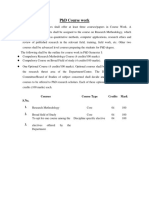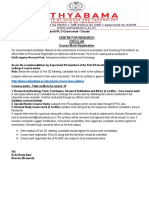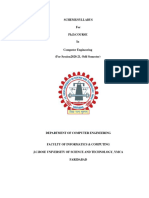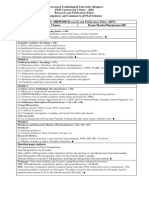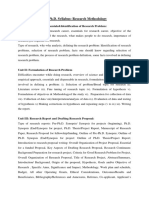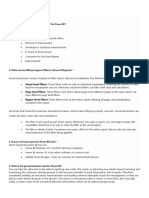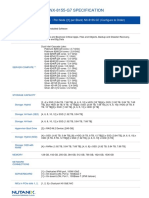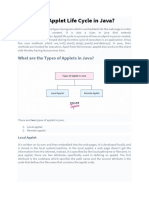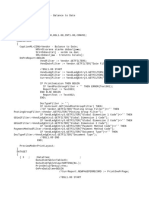0% found this document useful (0 votes)
19 views4 pagesPHD Syllabus Computer Science
The document outlines the course structure and syllabus for the Ph.D. program in Computer Science at the Central University of South Bihar, consisting of 12 credit courses totaling 14 credits. Key courses include Research Methodology, Research and Publication Ethics, Tools and Techniques of Research, and Preparation and Presentation of Research Proposal, each covering various essential topics for doctoral research. The syllabus emphasizes research ethics, methodologies, tools, and proposal preparation to equip students for their Ph.D. studies.
Uploaded by
dilkhush310Copyright
© © All Rights Reserved
We take content rights seriously. If you suspect this is your content, claim it here.
Available Formats
Download as PDF, TXT or read online on Scribd
0% found this document useful (0 votes)
19 views4 pagesPHD Syllabus Computer Science
The document outlines the course structure and syllabus for the Ph.D. program in Computer Science at the Central University of South Bihar, consisting of 12 credit courses totaling 14 credits. Key courses include Research Methodology, Research and Publication Ethics, Tools and Techniques of Research, and Preparation and Presentation of Research Proposal, each covering various essential topics for doctoral research. The syllabus emphasizes research ethics, methodologies, tools, and proposal preparation to equip students for their Ph.D. studies.
Uploaded by
dilkhush310Copyright
© © All Rights Reserved
We take content rights seriously. If you suspect this is your content, claim it here.
Available Formats
Download as PDF, TXT or read online on Scribd
/ 4























